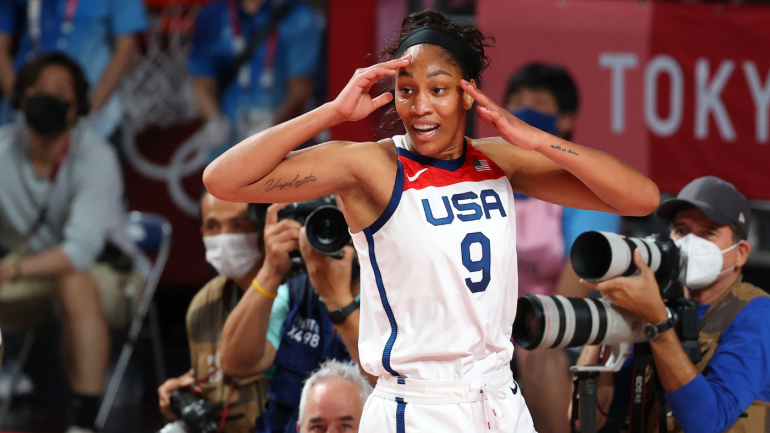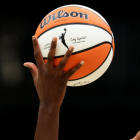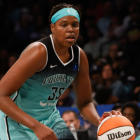
Over the past few months, athletes' mental health has once again taken center stage. We saw Naomi Osaka pull out of the French Open, Wimbledon and other tournaments to protect her mental health, and Simone Biles stepped back from her participation in gymnastic events at the Tokyo Olympics for similar reasons.
On the most recent episode of their podcast, Tea with A & Phee, WNBA stars A'ja Wilson and Napheesa Collier spent some time discussing why it's important for athletes to prioritize their mental health, and why it becomes such a divisive topic that many fans can't seem to understand.
Wilson noted that, in her view, the lack of empathy stems from the fact that fans see the players only as entertainment, rather than as people. A brief excerpt of their discussion, as transcribed by Just Women's Sports:
Wilson: Yeah. And I mean, we also know, like you said, as athletes, we know that it wasn't just like oh, she woke up one day and was like, 'okay, I'm done.' Like, it took time for herself to really grasp what she wanted to do. So man, shout out to Simone and Naomi for just like taking it and being like, okay, like I think that's what we need to see. And we're seeing more athletes do that, but it takes a lot.
Collier: Why do you think it's so hard for fans to recognize the mental toll that it takes?
Wilson: Because they just see us as entertainment and they don't see us as human. I think a good bit of fans, I don't wanna say all fans, but a good bit of fans see us as who we are. We're human. We go through things. Yes. But it's a lot of people out there, I think they just see this as just entertainment. And you're just supposed to do this to please me and how dare you do this? And I'm like, you're talking to someone that is a sister, a daughter, a mother, like they go through the same thing. And I'm pretty sure that the same person that is talking that cash money trash, if their sister, mother, or daughter was going through it, they wouldn't want anyone to talk to them in that way. And that's where I started snapping off. Cause I'm like, how dare you? You know? Like you're never, you got to put yourself in somebody else's shoes and think, could you work under that pressure? Exactly. I don't think so.
This, of course, is one hundred percent true. And, like many issues, the problem is magnified for Black athletes, and especially Black women -- the Osaka and Biles episodes being the latest examples.
Regardless of the sport or team, a sizable segment of the fanbase will view the players almost as robots who exist solely for their own enjoyment. Just look at the comments on social media any time a player posts about something other than the game or practice, and you'll find countless comments telling them to get back in the gym. That same attitude affects how fans view mental health struggles as well. As if high-level athletes should be immune to the pressures everyone else faces.
While the negative aspects of fandom, and culture in general, are probably never going to go away completely, the good news is that on the other side there's more support and understanding than ever before. As we move forward, hopefully, things will continue to trend in that direction.

















